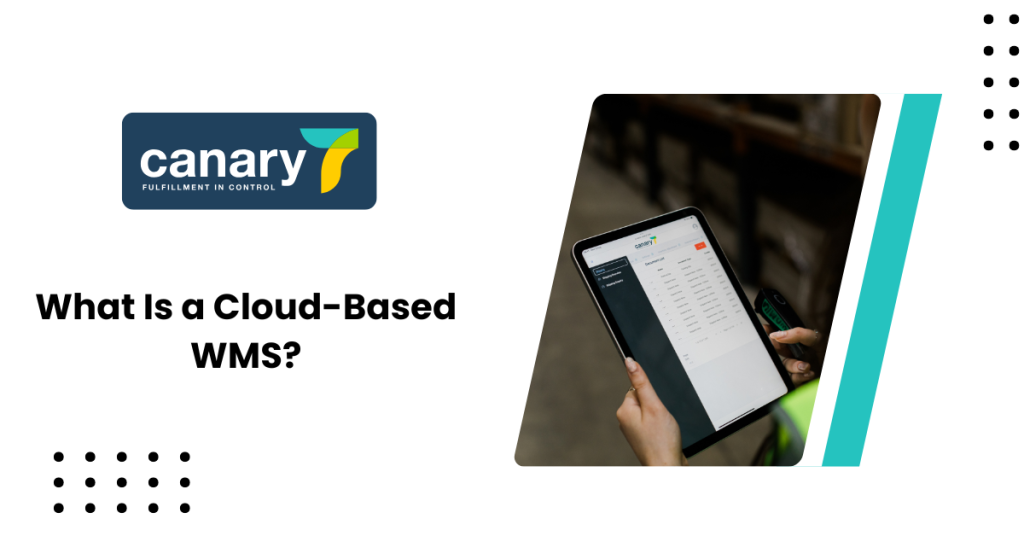Key Benefits of a Cloud-Based WMS
1. Real-Time Visibility Across Operations
One of the biggest challenges in warehouse management is maintaining accurate, up-to-the-minute visibility of inventory. A cloud-based WMS like Canary7 gives you real-time updates across every process, from inbound shipments to outbound fulfilment.
This level of visibility helps you reduce errors, prevent stockouts, and maintain a clear picture of your warehouse performance at all times.
2. Easy Scalability
As your business grows, so should your systems. With a cloud-based WMS, you can easily add new warehouses, products, or users without complex upgrades or expensive IT support.
This makes it the ideal solution for manufacturers, retailers, and 3PLs looking to expand into new regions or handle seasonal spikes in demand.
3. Seamless Integration with ERP and Other Systems
Cloud-based WMS solutions integrate smoothly with other business-critical tools, including ERP, CRM, and eCommerce platforms. Canary7, for example, connects directly to systems like SAP Business One, Acumatica, and NetSuite, ensuring real-time data flow between departments.
This integration eliminates duplicate data entry, minimises human error, and creates a unified, data-driven operation.
4. Lower IT Costs and Maintenance
Unlike on-premise software, cloud-based systems don’t require expensive servers, hardware upgrades, or in-house IT maintenance. Canary7 handles updates, backups, and system security automatically, meaning your team can focus on growth, not upkeep.
This not only reduces upfront costs but also lowers your total cost of ownership (TCO) over time.
5. Enhanced Security and Data Protection
A common misconception is that cloud-based software is less secure, in reality, it’s the opposite. Modern cloud providers use advanced encryption, firewalls, and multi-layered security protocols to safeguard your data.
Canary7 ensures that sensitive warehouse and inventory data remains protected while still being accessible to authorised team members whenever needed.
6. Faster Implementation and Upgrades
Traditional WMS systems often take months to deploy. A cloud-based WMS, on the other hand, can be implemented quickly, with minimal disruption to your existing operations.
Automatic updates mean your team always has access to the latest features and enhancements without downtime or manual installation.


